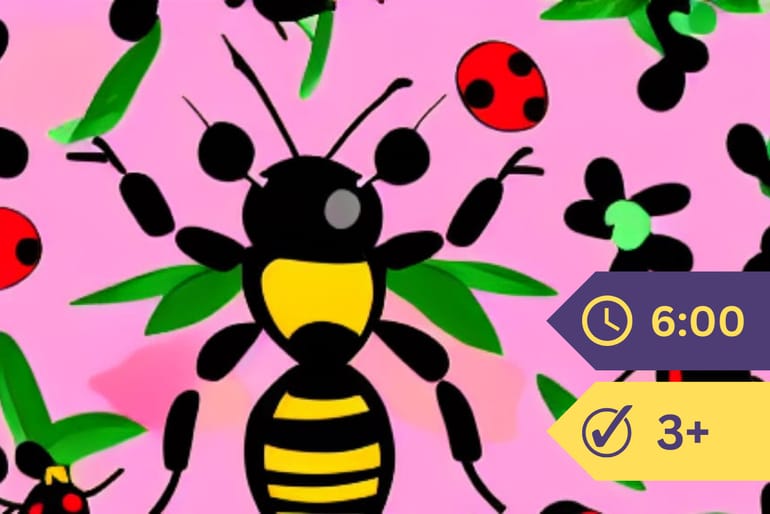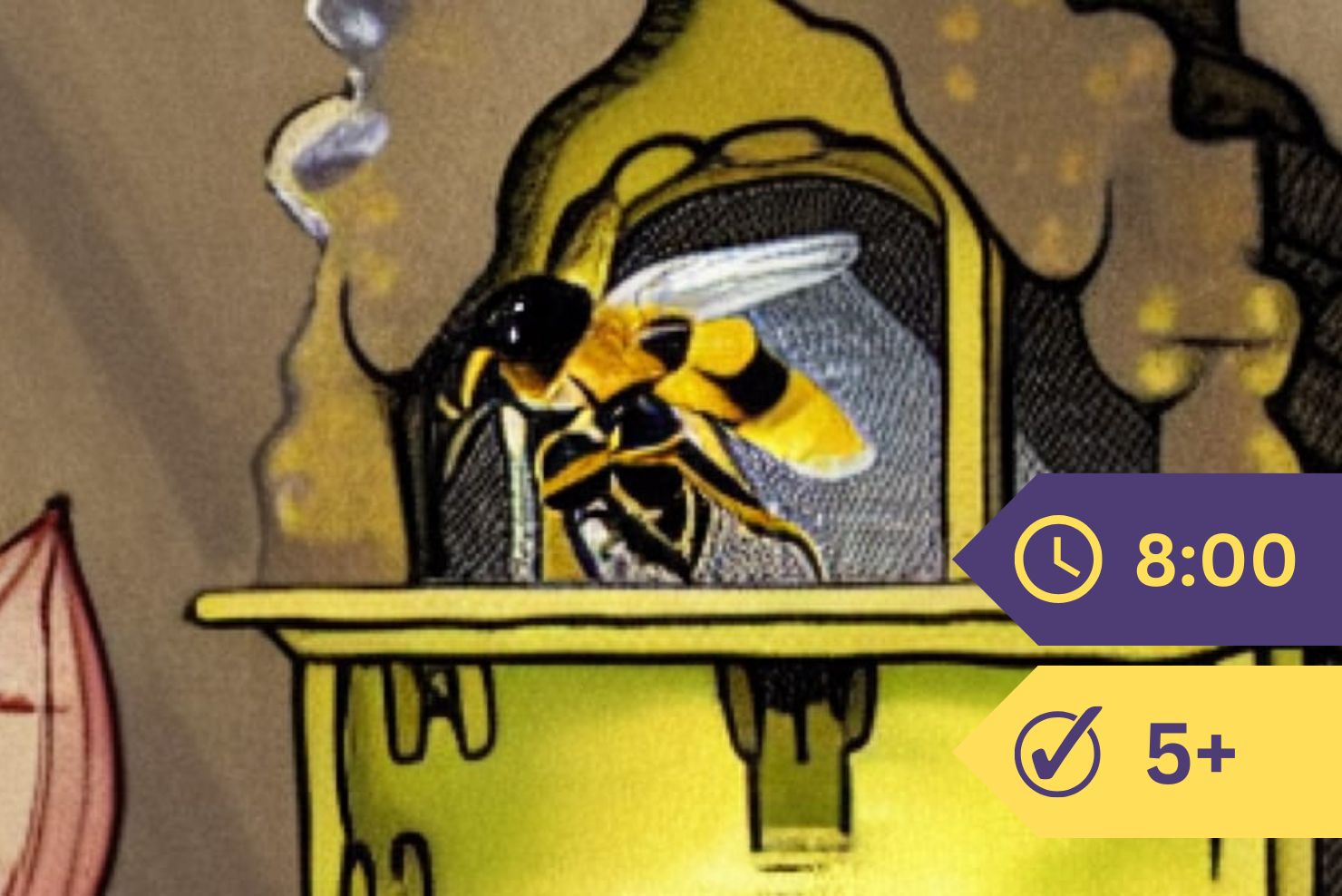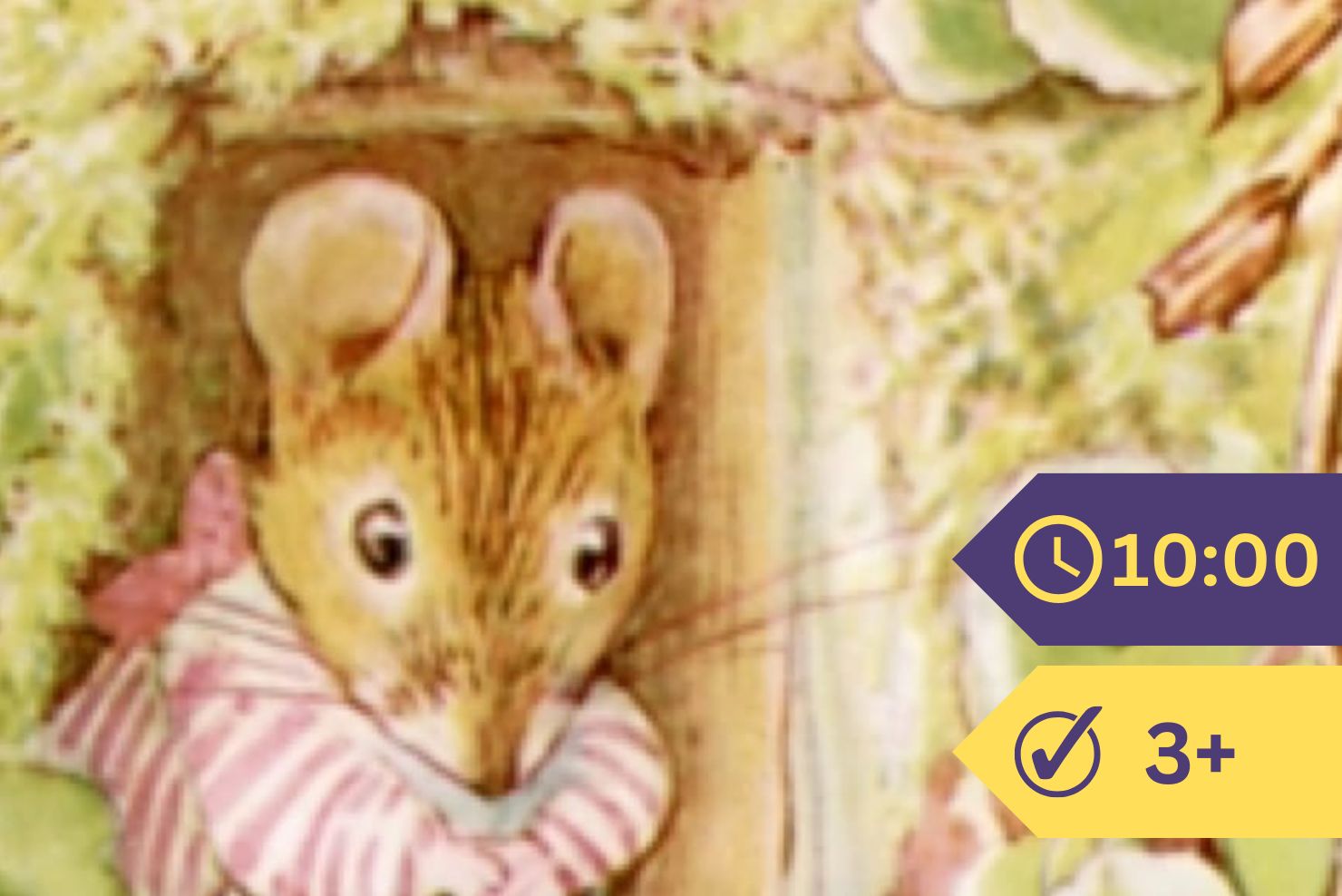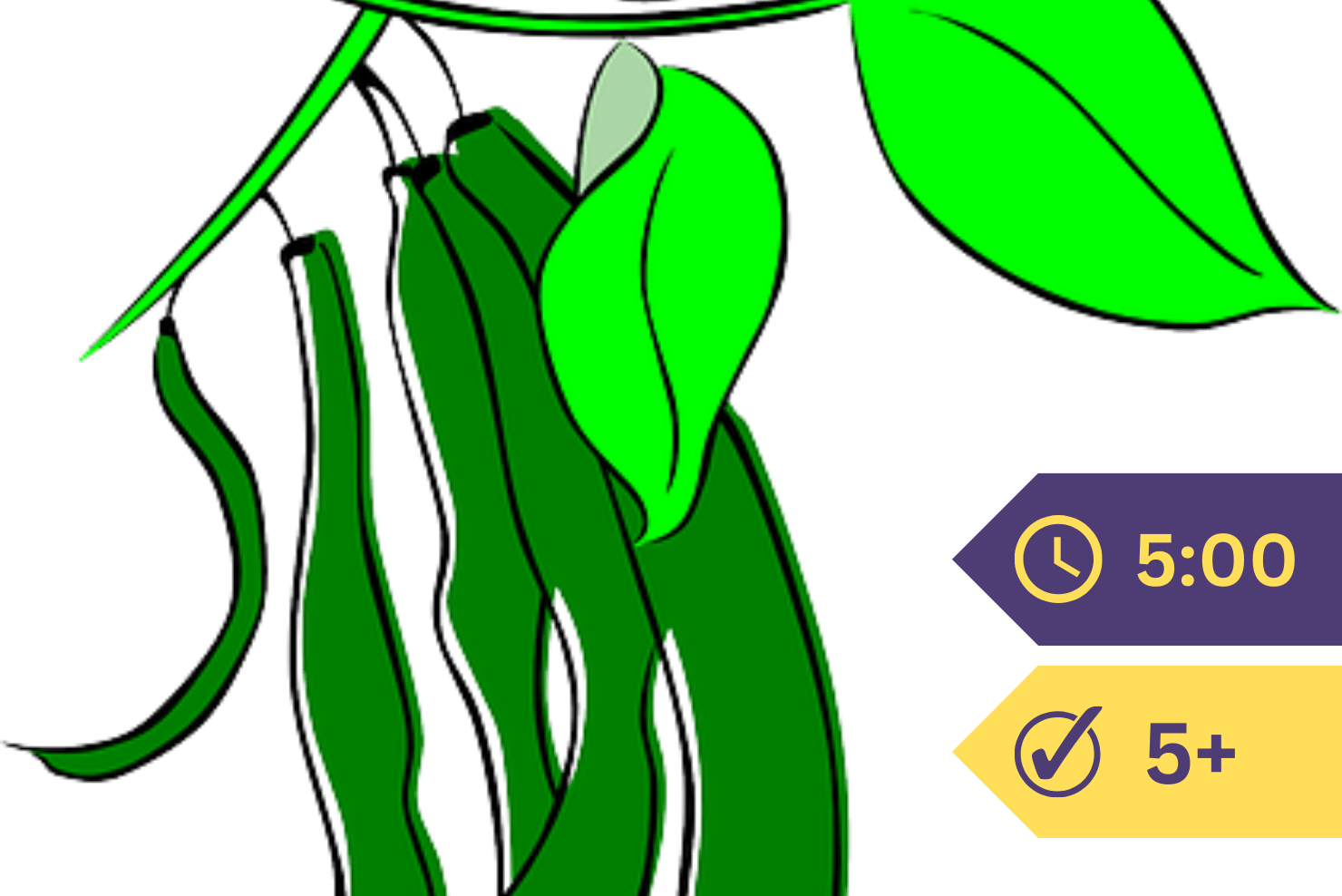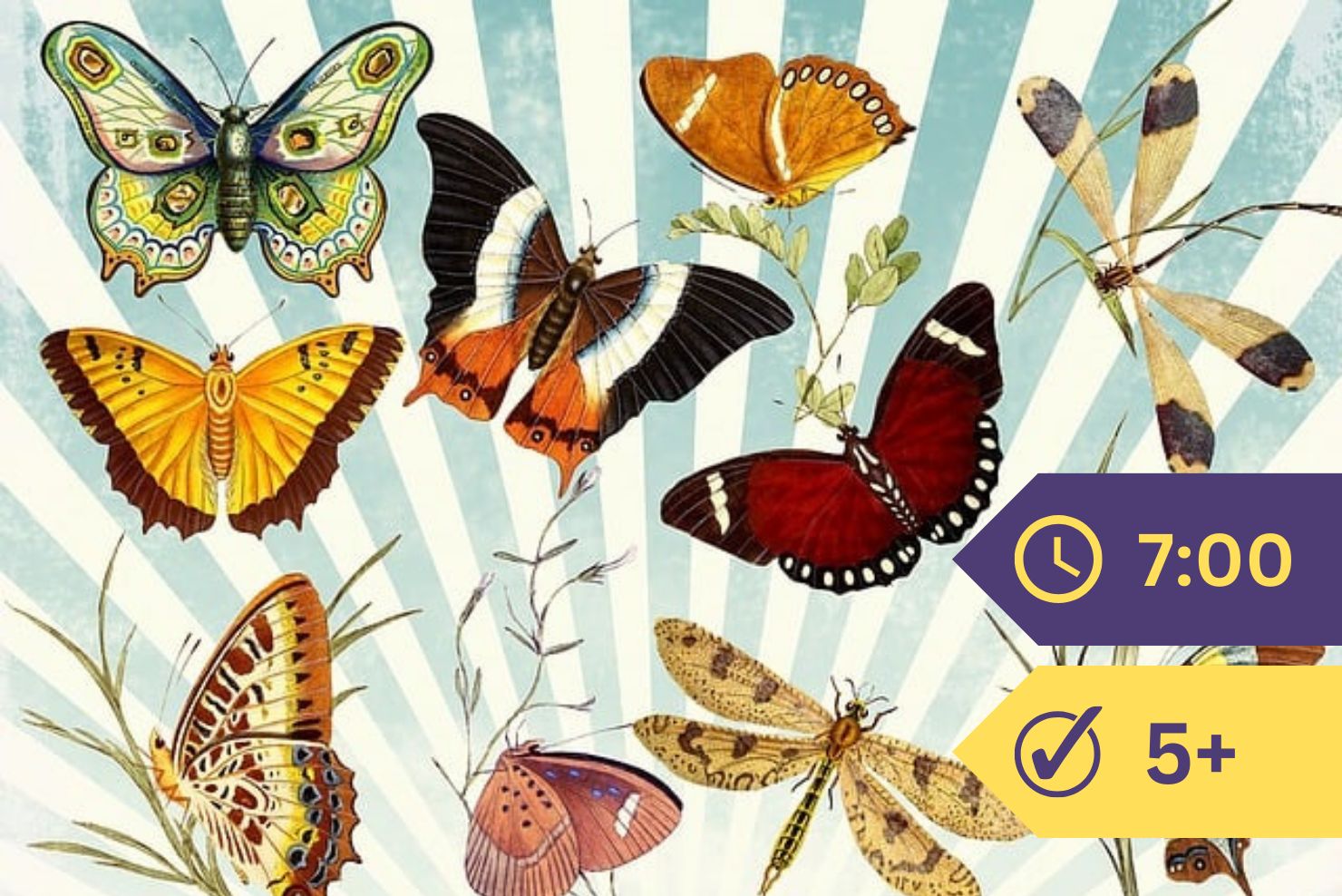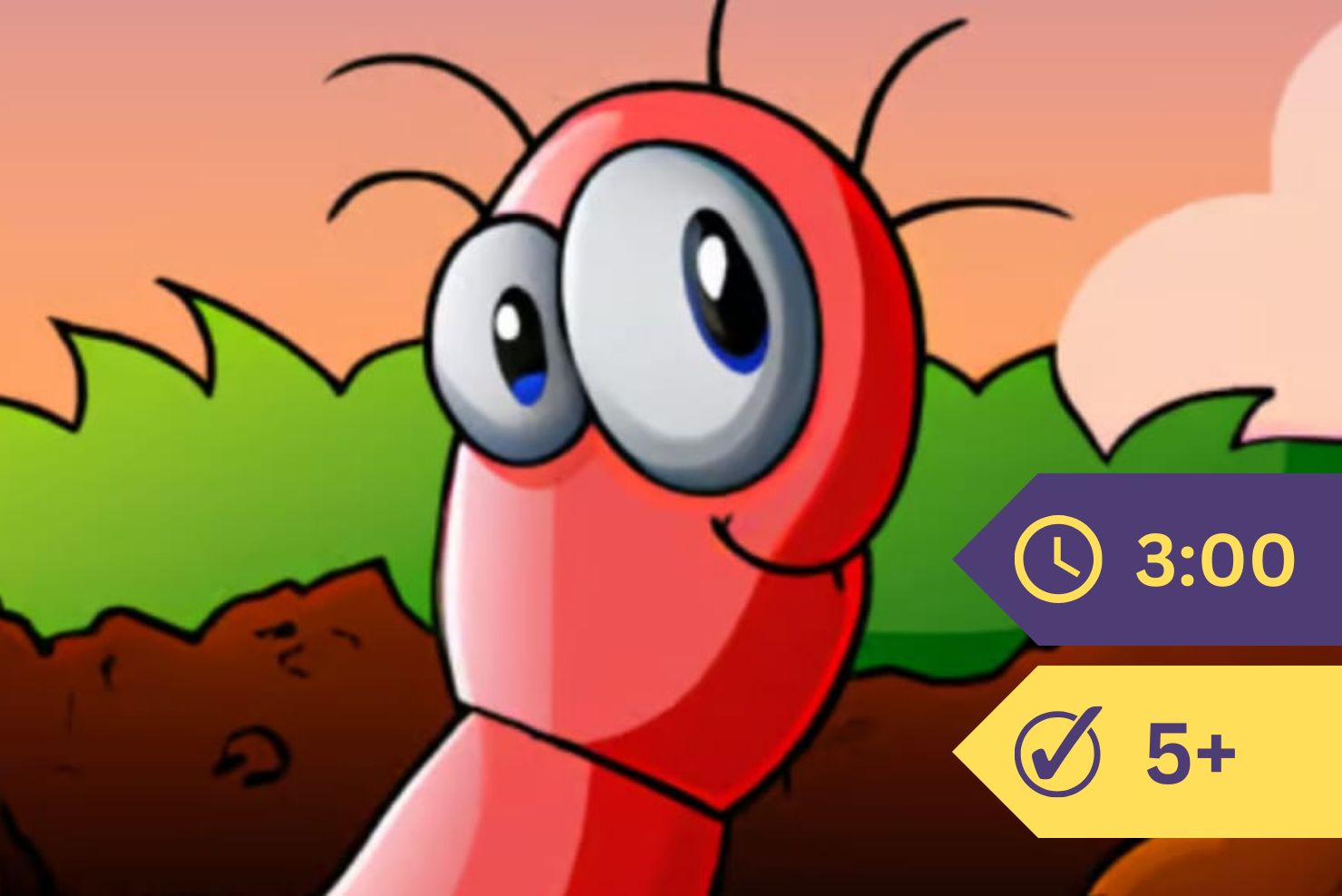The sun was already up when Maya woke up in her refuge in the forest. The moonlight, the cricket, the midsummer night, the forest elf, and the boy and girl in the arbor seemed like a wonderful dream. Yet it was almost noon now, so it had all been real.
The sun was shining bright and Maya heard the mixed choir of a thousand insects. What a difference there was between what those insects knew and what she knew! She was very proud of her adventures and everyone would surely be able to see that. But the sun shone the same as always and nothing had changed. The insects came and went and birds and butterflies frolicked around in the flower meadow.
Maya suddenly felt sad. There was no one in the world to share her joy and sorrow with. Instead of joining the others, she decided to go to the forest. The forest, with its many trees and dark paths, suited her mood better.
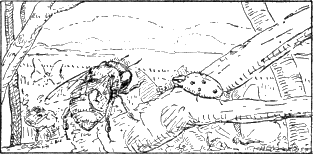
The forest has its own mysteries that no one suspects as they walk on the paths. You have to bend the branches of the undergrowth aside and peer through the bushes over the thick moss. The secrets of the forest are found under the leaves and in the holes of the tree trunks. There you find happiness and sadness, joy and danger.
Maya understood very little of this as she flew between the trees. One moment she flew in the shade, the next moment in the glow of the sun, which shone brightly on the ferns and blackberries. After a while, she flew out of the woods and a large field of grain appeared, bathing in the sunlight. She sat on a branch of a birch tree at the edge of the field and stared breathlessly at the sea of gold. The grain waved gently in the wind. Under the birch tree, a few small brown butterflies played with some leaves. Maya watched them for a while.
“That must be really fun,” she thought, “the children in the hive could play like that too. But Cassandra wouldn’t allow it, she’s always so strict.”
Now that she thought of home, Maya felt sad again. She was about to get very homesick when she heard someone say next to her, “Good morning. You’re a really dangerous creature, I think.”
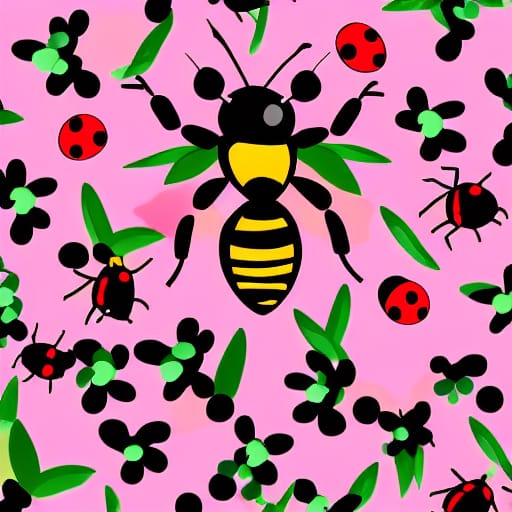
Maya turned around startled. “No, I’m not,” she said, “I’ve decided not to be a dangerous creature.”
On her leaf sat a small hemispherical creature in a red/brown color with seven black dots and a tiny head with bright eyes. Maya saw that the creature had thin legs as fine as threads. Despite its strange appearance, Maya liked it immediately.
“May I ask who you are? I myself am Maya, of the bee people.”
“Do you mean to insult me? You have no reason to do so,” said the creature.
“But why am I insulting you? I don’t even know who you are,” Maya cried upset.
“It’s easy to say that you don’t know me. Well, let me refresh your memory.” And the little thing began to spin slowly.
“Do you mean I have to count your dots?”
“Yes, if you like.”
“Seven dots,” said Maya.
“Well, don’t you know yet? Our family name is Septempuncta. This means seven points in Latin. But we are better known under the family name Ladybugs. My name is Elvis and I am a poet by profession.”
Maya, afraid to hurt his feelings again, dared not say anything more.
“Oh,” he said, “and I live on the sun, on the tranquility of the day, and on the love of mankind.”
“But don’t you eat anything?” Maya asked in surprise.
“Of course. I eat aphids. Don’t you?”
“Well, no. That is…”
“What is it?”
“Not normal,” Maya said, embarrassed.
“Well, of course,” exclaimed Elvis. “As a good citizen, you only do what is normal. But we poets are different. Do you have a moment?”
“Yes, of course,” said Maya.
“Then I’ll recite a poem for you. Sit still and close your eyes so that nothing distracts you. The poem is called ‘The Shape of the Man’ and is personal. Listen: ‘You haven’t done anything wrong to me. You’ve found me, but that doesn’t matter. Round and long. With a shield. That moves as fast as light. Round and pointed at the top. It’s firmly attached at the bottom.'”
“How do you like the poem?” Elvis asked after a short pause. There were tears in his eyes and his voice trembled.
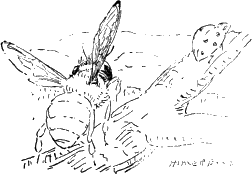
“‘The Shape of the Man’ really makes an impression,” Maya replied, somewhat shyly. But she knew much more beautiful poems.
“How do you like the form?” Elvis asked with a melancholic smile. He seemed overwhelmed by the effect he had produced.
“Long and round. That’s what you said in the poem.”
“I mean the artistic form, the form of my verse.”
“Oh, yes. Yes, I thought it was very good.”
“What you mean to say is that it’s one of the best poems you know. The first requirement in art is that it must contain something new. Do you think so too?”
“Definitely, definitely,” said Maya. “I think…”
“Your faith and trust in me overwhelm me. But I have to go now, because loneliness is the pride of the poet. Farewell.”
“Farewell,” repeated Maya, who really didn’t know what the little creature was looking for again. Then she thought, “Maybe he’s not fully grown because he’s still very small.” She watched him hurry over the branch. His little legs were barely visible. And Maya stared again over the golden field of grain where the butterflies played. The field and the butterflies gave her much more joy than the poems of Elvis, the ladybug.

